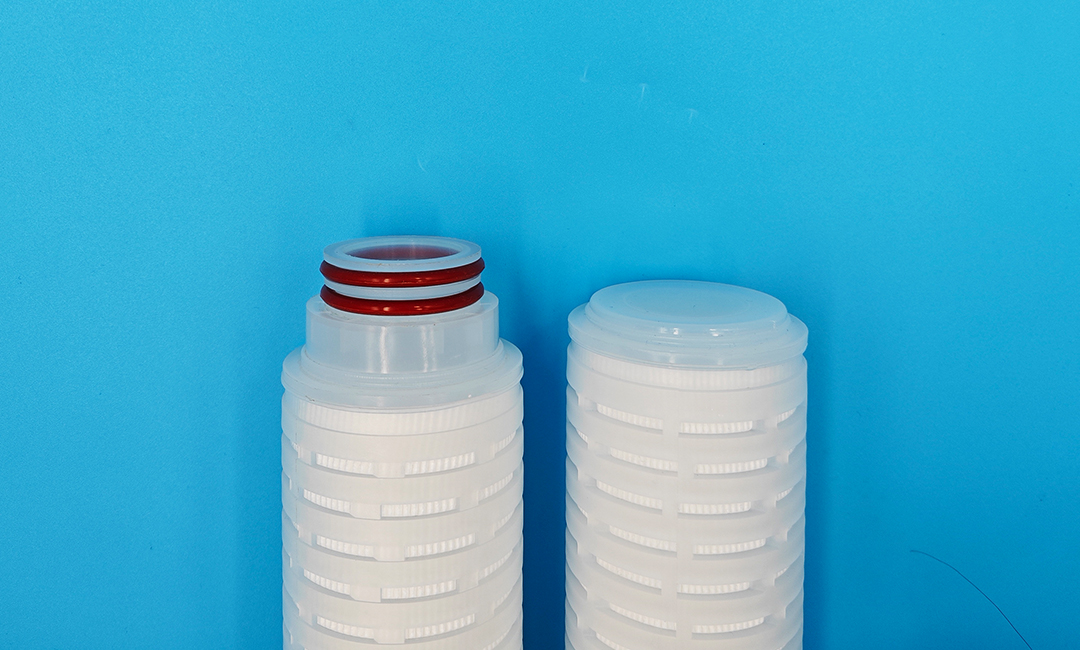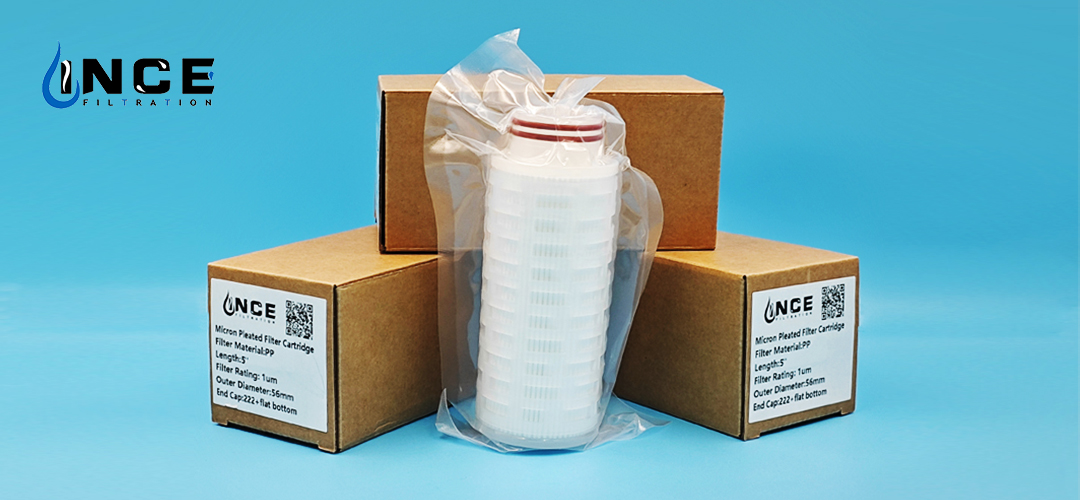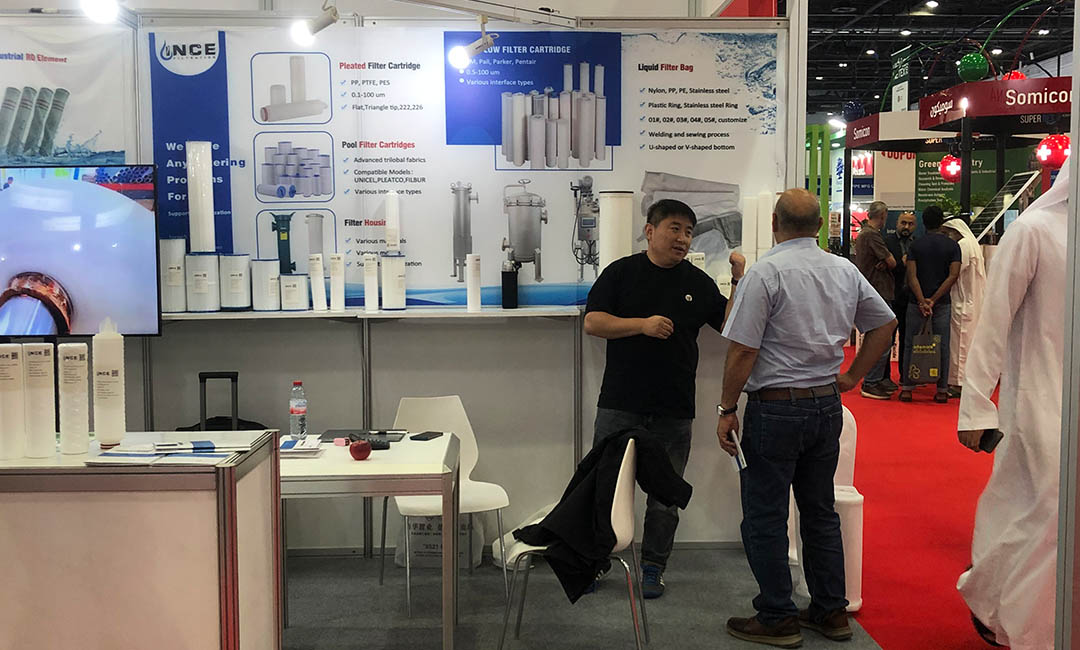High Flow Pleated Filters for Agriculture: A Complete Guide
Benefits of Using High Flow Pleated Filters in Agricultural Applications
High flow pleated filters are an essential component in many agricultural applications, providing numerous benefits that can improve efficiency and productivity. These filters are designed to handle high flow rates while effectively removing contaminants from water, making them ideal for use in irrigation systems, livestock watering systems, and other agricultural processes.
One of the key benefits of using high flow pleated filters in agriculture is their ability to improve water quality. By removing sediment, debris, and other particles from water, these filters help ensure that the water used for irrigation or livestock watering is clean and free from harmful contaminants. This not only helps to protect crops and livestock from potential health risks but also helps to prevent clogging and damage to irrigation equipment.

In addition to improving water quality, high flow pleated filters can also help to extend the life of irrigation systems and other agricultural equipment. By removing particles that can cause clogs and damage, these filters help to reduce maintenance requirements and prolong the lifespan of pumps, valves, and other components. This can result in cost savings for farmers and reduce downtime associated with equipment repairs and replacements.

Another benefit of using high flow pleated filters in agriculture is their high flow rates, which allow for efficient water filtration without sacrificing performance. These filters are designed to handle large volumes of water, making them well-suited for use in agricultural applications where high flow rates are common. This can help to ensure that water is filtered quickly and effectively, allowing for uninterrupted operation of irrigation systems and other equipment.
Furthermore, high flow pleated filters are easy to install and maintain, making them a convenient and cost-effective solution for agricultural operations. These filters can be quickly and easily replaced when needed, minimizing downtime and ensuring that water filtration systems are always operating at peak efficiency. Additionally, many high flow pleated filters are designed to be reusable, allowing farmers to clean and reuse the filters multiple times before replacement is necessary.
Overall, the benefits of using high flow pleated filters in agriculture are clear. These filters improve water quality, extend the life of equipment, and provide efficient filtration at high flow rates. By incorporating high flow pleated filters into their agricultural processes, farmers can ensure that their crops and livestock receive clean, safe water while also reducing maintenance costs and improving overall efficiency.
In conclusion, high flow pleated filters are a valuable tool for farmers looking to improve water quality and efficiency in their agricultural operations. With their ability to handle high flow rates, remove contaminants, and extend the life of equipment, these filters offer numerous benefits that can help farmers achieve greater success in their operations. Whether used in irrigation systems, livestock watering systems, or other agricultural processes, high flow pleated filters are a reliable and effective solution for improving water quality and productivity in agriculture.
How to Choose the Right High Flow Pleated Filter for Your Agricultural Needs
High flow pleated filters are an essential component in the agricultural industry, helping to ensure the quality and efficiency of various processes. These filters are designed to handle high flow rates while effectively removing contaminants from water, air, or other fluids. Choosing the right high flow pleated filter for your agricultural needs is crucial to achieving optimal performance and maintaining the longevity of your equipment.
When selecting a high flow pleated filter for agricultural applications, there are several factors to consider. The first step is to determine the specific requirements of your operation, including the type of fluid being filtered, the flow rate, and the level of filtration needed. Understanding these factors will help you narrow down your options and choose a filter that meets your specific needs.
One of the most important considerations when selecting a high flow pleated filter is the filtration efficiency. The filtration efficiency of a filter is determined by its ability to remove contaminants of a certain size from the fluid being filtered. For agricultural applications, it is essential to choose a filter with a high filtration efficiency to ensure that the water or air being used is free from harmful particles that could damage equipment or affect crop quality.
Another important factor to consider when choosing a high flow pleated filter is the filter media. The filter media is the material that traps contaminants as the fluid passes through the filter. Different filter media have varying levels of efficiency and durability, so it is important to choose a filter with a media that is suitable for the specific contaminants present in your operation.
In addition to filtration efficiency and filter media, it is also important to consider the flow rate of the filter. High flow pleated filters are designed to handle large volumes of fluid, so it is important to choose a filter that can accommodate the flow rate of your operation without causing a drop in performance. Selecting a filter with the appropriate flow rate will help ensure that your equipment operates efficiently and effectively.
When choosing a high flow pleated filter for agricultural applications, it is also important to consider the size and configuration of the filter. Filters come in a variety of sizes and configurations, so it is important to choose a filter that fits the space and layout of your operation. Additionally, some filters are designed for specific applications, such as irrigation or livestock watering, so it is important to choose a filter that is suitable for your specific needs.
In conclusion, choosing the right high flow pleated filter for your agricultural needs is essential to maintaining the quality and efficiency of your operation. By considering factors such as filtration efficiency, filter media, flow rate, and size, you can select a filter that meets your specific requirements and helps you achieve optimal performance. With the right filter in place, you can ensure that your equipment operates efficiently and effectively, leading to improved crop quality and increased productivity in your agricultural operation.
Maintenance Tips for High Flow Pleated Filters in Agriculture
High flow pleated filters are an essential component in agricultural operations, helping to ensure the quality and efficiency of irrigation systems. These filters are designed to remove impurities and debris from water sources, preventing clogs and damage to equipment. Proper maintenance of high flow pleated filters is crucial to their effectiveness and longevity. In this article, we will provide a complete guide to maintaining high flow pleated filters in agriculture.
Regular inspection of high flow pleated filters is key to ensuring they are functioning properly. Inspect the filter housing for any signs of damage or wear, such as cracks or leaks. Check the filter element for any tears or holes that may allow contaminants to pass through. It is also important to monitor the pressure gauge on the filter housing, as a sudden increase in pressure may indicate a clog in the filter.

Cleaning high flow pleated filters is an important part of maintenance. Filters should be cleaned regularly to prevent buildup of debris and maintain optimal flow rates. To clean the filter, remove it from the housing and rinse it thoroughly with clean water. For stubborn debris, a mild detergent or filter cleaner can be used. Be sure to rinse the filter thoroughly after cleaning to remove any residue.
Replacing the filter element is another important aspect of maintenance for high flow pleated filters. Over time, the filter element will become clogged with debris and lose its effectiveness. It is recommended to replace the filter element at least once a year, or more frequently if the filter is used in a particularly dirty environment. When replacing the filter element, be sure to use a high-quality replacement that is compatible with your filter housing.
In addition to regular maintenance, there are some tips and tricks that can help extend the life of high flow pleated filters. One tip is to install a pre-filter before the high flow pleated filter to remove larger particles and reduce the workload on the main filter. This can help prevent clogs and prolong the life of the filter element. Another tip is to install a pressure relief valve on the filter housing to prevent damage from excessive pressure buildup.

Proper storage of high flow pleated filters is also important for maintaining their effectiveness. Filters should be stored in a clean, dry environment away from direct sunlight and extreme temperatures. It is recommended to store filters in their original packaging or a protective case to prevent damage during storage.
In conclusion, proper maintenance of high flow pleated filters is essential for ensuring the quality and efficiency of agricultural operations. Regular inspection, cleaning, and replacement of filter elements are key components of maintenance. By following these tips and tricks, you can help extend the life of your high flow pleated filters and keep your irrigation system running smoothly.
